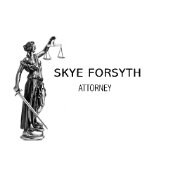Best Lawsuits & Disputes Lawyers in Hilton
Share your needs with us, get contacted by law firms.
Free. Takes 2 min.
List of the best lawyers in Hilton, South Africa
South Africa Lawsuits & Disputes Legal Articles
Browse our 3 legal articles about Lawsuits & Disputes in South Africa written by expert lawyers.
- A Guide to Navigating Divorce Proceedings in South Africa
- Navigating Divorce Proceedings in South Africa Key Takeaways Ending a marriage in South Africa involves navigating specific legal channels, from deciding on child care to dividing assets based on your matrimonial property regime. Understanding the procedural differences between regional courts and the High Court can save you significant time, money,... Read more →
- Consumer Protection Act Guide for South Africa Home Buyers
- The Consumer Protection Act (CPA) applies only to property sold by developers or investors in the ordinary course of their business, not to private sales between individuals. Developers cannot use the "voetstoots" (as-is) clause to escape liability for latent defects under the CPA. Buyers have a statutory right to receive... Read more →
- How to File a Road Accident Fund Claim in South Africa
- Claims for accidents where the driver is identified must be lodged within three years of the incident. "Hit and run" claims involving unidentified drivers have a much shorter deadline of only two years. General damages for pain and suffering are only available if your injury is classified as "serious" (30%... Read more →
About Lawsuits & Disputes Law in Hilton, South Africa
Hilton, located in the KwaZulu-Natal province of South Africa, operates within the broader framework of South African civil law when it comes to lawsuits and disputes. Lawsuits and disputes broadly cover disagreements between parties, including individuals, businesses, or organizations, that require legal resolution. These can involve contracts, property, employment, family law, personal injury, and more. Local courts, such as the Magistrate’s Court in Pietermaritzburg, serve the Hilton area for most civil matters, while higher-value or more complex disputes may be escalated to the High Court.
Why You May Need a Lawyer
Many situations can arise where seeking legal advice is crucial for protecting your rights or interests. You may need a lawyer if:
- You are being sued or need to initiate a lawsuit against someone else.
- You are involved in a contractual dispute (for example regarding the sale of goods or property).
- There is a dispute over property boundaries, ownership, or inheritance.
- You have suffered harm or damages (personal injury, defamation, etc.) and wish to claim compensation.
- There are employment disputes involving unfair dismissal, discrimination, or wage issues.
- You are facing difficulties with service providers, landlords, or tenants.
- There are family disputes such as divorce, child custody, or maintenance issues.
- You are unsure about your legal rights or the next steps in a disagreement.
Legal processes in South Africa can be complex, time-sensitive, and require local knowledge and expertise. A qualified lawyer will help you understand your position, gather evidence, file paperwork, and represent your interests in negotiations or court proceedings.
Local Laws Overview
Hilton, as part of South Africa, is governed by the country’s Constitution and legal codes such as the Magistrates’ Courts Act, the Uniform Rules of Court, and various specific statutes (e.g., Labour Relations Act, Consumer Protection Act).
Key aspects include:
- Jurisdiction: The type and value of your dispute determines which court hears the matter. Minor civil matters (below certain monetary thresholds) usually go to the Magistrate’s Court; more significant or complex cases can be escalated to the High Court.
- Prescribed Procedures: Formal steps (e.g., letters of demand, mediation, summons) are often required before or during litigation. Missing deadlines or procedures can harm your case.
- Alternative Dispute Resolution: Mediation and arbitration are encouraged to resolve matters more quickly and affordably than litigation, particularly in family and commercial disputes.
- Costs: Usually, the losing party may be required to pay the legal costs of the winning party, but this is not always automatic.
Understanding specific regulations and court practices in Hilton’s jurisdiction is vital for an effective legal strategy.
Frequently Asked Questions
What is a civil lawsuit?
A civil lawsuit is a legal dispute between two or more parties seeking monetary damages or specific performance rather than criminal sanctions. Examples include contract breaches, property disputes, or claims for damages.
Do I need a lawyer to start a lawsuit in Hilton?
While you can represent yourself, having a lawyer can help ensure your claim is properly presented and increases the chances of a favourable outcome. Legal procedures can be confusing without expert knowledge.
What kinds of disputes are most common?
Common disputes include contractual disagreements, landlord-tenant issues, property and boundary conflicts, family law disputes, defamation claims, and unpaid debts.
What should I do if I receive a legal summons or notice?
Act quickly. Do not ignore it. Read the document carefully and consult a lawyer to understand your options and how much time you have to respond.
How long do lawsuits and disputes usually take?
The length varies greatly depending on complexity, the court's schedule, and whether the matter settles out of court. Some disputes can resolve in weeks, while others take months or years.
What is mediation, and is it required?
Mediation is a process where an impartial third party helps parties reach a mutual agreement. South African courts increasingly encourage mediation to reduce court caseloads and achieve faster resolutions.
What happens if I lose a lawsuit?
You may be ordered to pay damages and possibly the other party’s legal costs. Your lawyer can advise if you have grounds to appeal.
Can disputes be resolved without going to court?
Yes, many disputes are settled through negotiation, mediation, or arbitration before or even after litigation has begun.
How much does it cost to pursue a lawsuit?
Costs depend on the nature and complexity of your case. Expenses can include legal fees, court costs, and expert reports. Always discuss fees with your lawyer upfront.
Are small claims handled differently?
Yes, South Africa has Small Claims Courts for disputes under a specific monetary threshold, designed to be accessible and affordable, often not requiring legal representation.
Additional Resources
For further assistance and information, consider the following resources:
- Legal Practice Council: Regulates lawyers and can help you find an admitted legal practitioner in the Hilton area.
- Small Claims Court: Handles minor civil disputes; staff can provide guidance on the process for claims under the statutory limit.
- Hilton Municipality: For queries relating to local by-laws affecting property and businesses.
- Department of Justice and Constitutional Development: Provides public legal education and court information.
- Law Society of South Africa: Offers resources and search facilities to locate attorneys.
Next Steps
If you need legal assistance with a lawsuit or dispute in Hilton:
- Document your issue thoroughly: Gather all relevant paperwork, contracts, correspondence, and evidence.
- Seek legal advice promptly: Contact a qualified attorney experienced in South African lawsuits and dispute resolution in the Hilton area.
- Explore alternative dispute resolution: Ask your lawyer if mediation or arbitration could resolve your matter more efficiently.
- Understand your costs: Request a breakdown of potential fees and expenses upfront.
- Act within time limits: Legal claims are subject to strict time periods known as prescription; delaying can jeopardise your rights.
- Stay informed: Ask questions and make sure you understand each stage of the process as the case proceeds.
Taking these steps ensures you are prepared and protected as you navigate your legal dispute in Hilton, South Africa.
Lawzana helps you find the best lawyers and law firms in Hilton through a curated and pre-screened list of qualified legal professionals. Our platform offers rankings and detailed profiles of attorneys and law firms, allowing you to compare based on practice areas, including Lawsuits & Disputes, experience, and client feedback.
Each profile includes a description of the firm's areas of practice, client reviews, team members and partners, year of establishment, spoken languages, office locations, contact information, social media presence, and any published articles or resources. Most firms on our platform speak English and are experienced in both local and international legal matters.
Get a quote from top-rated law firms in Hilton, South Africa — quickly, securely, and without unnecessary hassle.
Disclaimer:
The information provided on this page is for general informational purposes only and does not constitute legal advice. While we strive to ensure the accuracy and relevance of the content, legal information may change over time, and interpretations of the law can vary. You should always consult with a qualified legal professional for advice specific to your situation.
We disclaim all liability for actions taken or not taken based on the content of this page. If you believe any information is incorrect or outdated, please contact us, and we will review and update it where appropriate.
Browse lawsuits & disputes law firms by service in Hilton, South Africa
Hilton, South Africa Attorneys in related practice areas.









